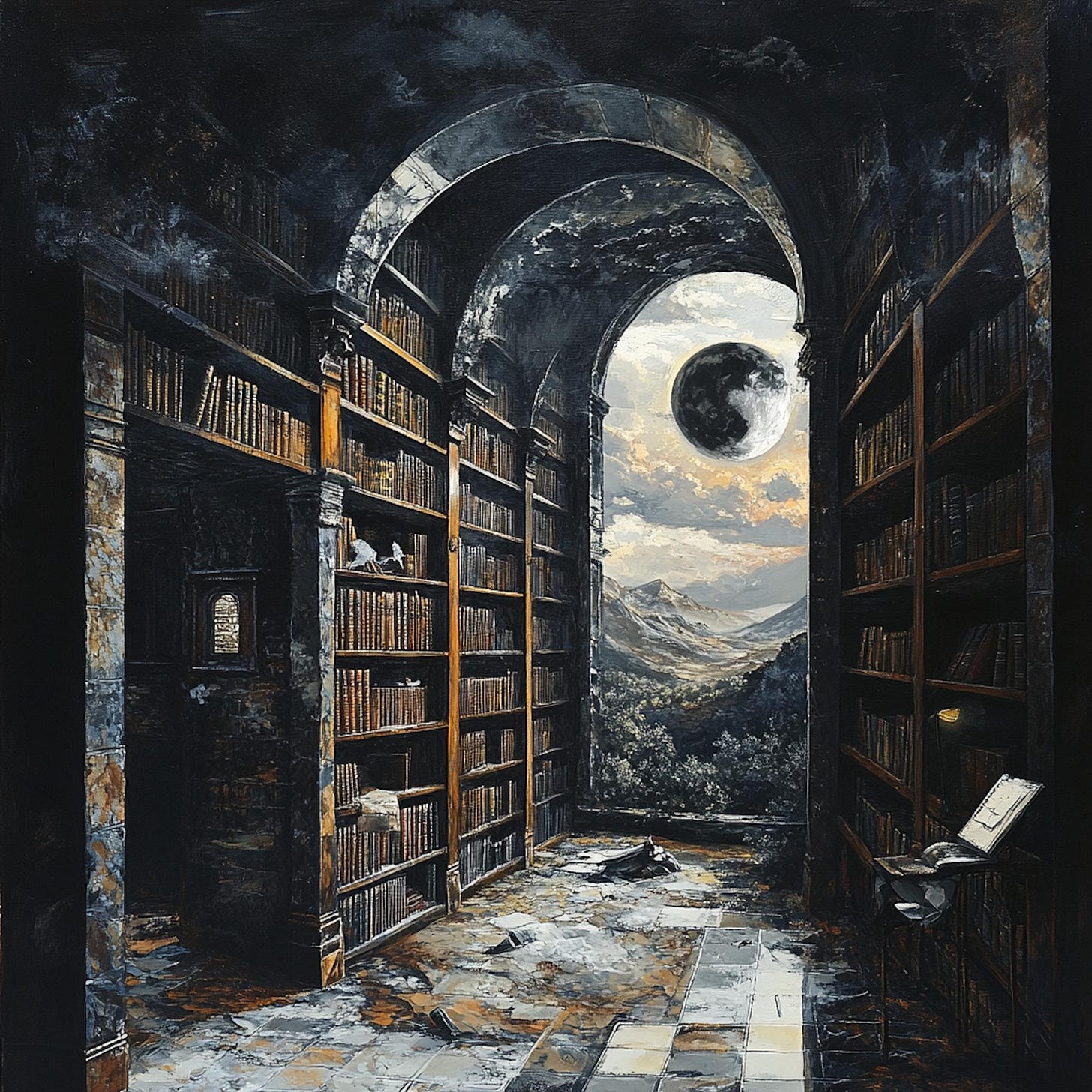The Writer's Paradox: Personal Is Universal
When you write from your own deepest truth, you speak most deeply to others. Chapter 6 of 'Writing at the Wellspring.'
Dear Living Dark reader,
Here is Chapter 6 of Writing at the Wellspring, constituting a revision of an essay by the same title that I originally published here a year and a half ago.
As I write these words, I’m one day away from the final class meeting of the online “Writing at the Wellspring” course that I’ve been teaching on Weirdosphere since October. More than eighty people ended up enrolling, including many Living Dark subscribers. It has been one of the most enriching experiences of my career. As the students and I have delved into the collective mysterium of creativity, life purpose, nonduality, and the daemon muse, our interaction in both class meetings and online discussions has essentially demonstrated the point of the chapter below by calling out the glowing lines of interconnection and even identity among our individual and personal interests, passions, issues, and concerns
The proprietors of Weirdosphere, Phil Ford and J. F. Martel, who are also, of course, the creators and co-hosts of the Weird Studies podcast, have invited me to either teach the course again in the future or leave it open for people to continue enrolling so that they can watch the recordings. I’m still mulling that one over. I will definitely let you know.
In the meantime, here’s a statement of the transcendent unity-in-depth that makes each of us speak with a voice of compelling universal concern whenever we tap into our own uniqueness and write from the heart of it with clarity and honesty.
Warm regards,
The Writer’s Paradox
Chapter Six of Writing at the Wellspring: Creativity, Life Purpose, Nonduality, and the Daemon Muse
Personal Is Universal
Creativity involves a hidden paradox. So does authentic spirituality. Understanding it gives you the secret key to both.
It is centered in a matter of considerable significance for all writers, creators, and spiritual seekers: the relationship between you and others, between your personal depths, desires, and dreams, and the world of otherness in which you perceive yourself to be immersed and with which you perceive yourself to be confronted. How can you write effectively to that, in a way that bridges this gap between yourself and others to forge a link and communicate your vision?
The secret is this: What is most private and personal in you is also what is most universal. What is deepest in you is deepest in all people—and in the world itself. The more deeply you look into yourself, the more you find what is most important to everyone. The most private you, “the real you,” isn’t isolated and alone. Rather, it is your secret point of contact with the whole cosmos. When you speak, write, think, perceive, and act from your deepest, truest self, you automatically speak to other people’s deepest desires and concerns as well.
This is the source and essence of creativity on the part of both the creator and the audience. It is also the meaning of spirituality and religion. The composer Richard Strauss characterized it as “the source of Infinite and Eternal energy from which you and I and all things proceed,” and he asserted that in addition to being the source of the musical inspiration that he received in his highest moments—which he described as “definite compelling visions, involving a higher selfhood”— it is what religion refers to when it speaks of God.1
The practical implications are radical.




